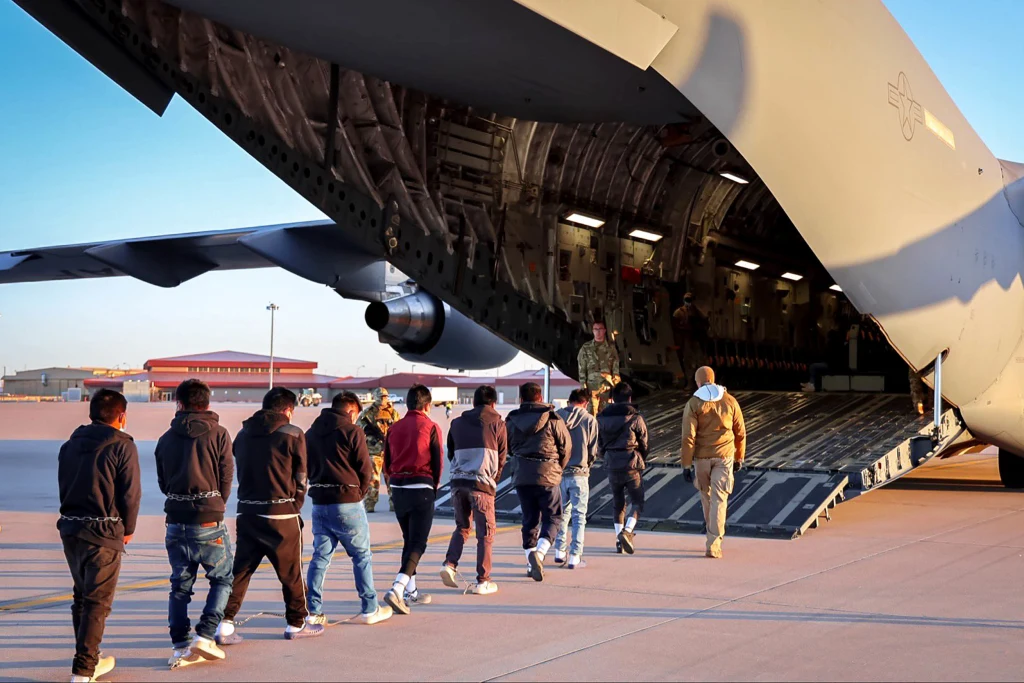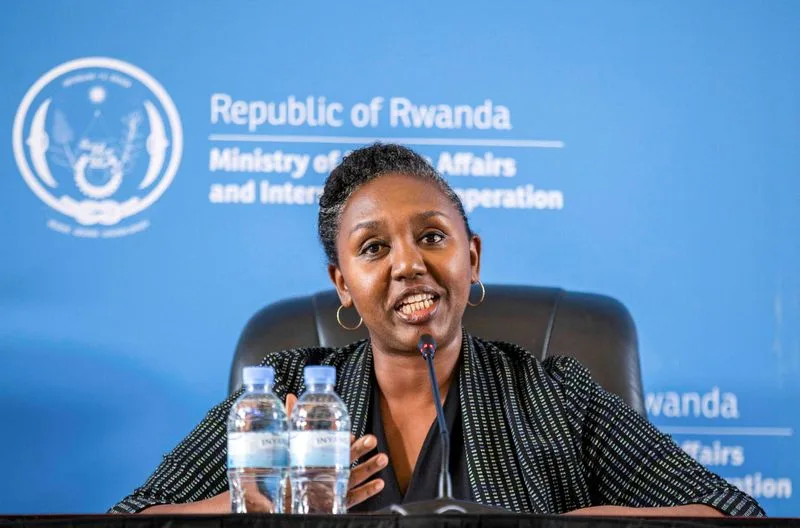Rwandan government spokesperson Yolande Makolo confirmed the arrivals, noting, “Three of the individuals have expressed a desire to return to their home countries, while four wish to stay and build lives in Rwanda.”
Rwanda Receives First Migrants Deported from the US Under Controversial Agreement

By Bheki Dlamini
In mid-August, Rwanda welcomed the first group of seven migrants deported from the United States, marking the beginning of a new, contentious chapter in global migration management. This move follows a bilateral agreement between Washington and Kigali, under which Rwanda agreed to accept up to 250 migrants who cannot remain in the US, despite having no prior ties to Rwanda.
Rwandan government spokesperson Yolande Makolo confirmed the arrivals, noting, “Three of the individuals have expressed a desire to return to their home countries, while four wish to stay and build lives in Rwanda.” Regardless of their choices, all received support through healthcare, workforce training, and accommodation, a compassionate gesture amid debate.
Rwanda joins South Sudan, Eswatini, and Uganda as African nations engaging in “third-country” resettlement agreements with the US. This approach, championed by the Trump administration, aims to expedite deportations of migrants, including those with criminal records, by relocating them to countries willing to accept them, even if they have no historical or familial connection.
READ MORE: U.S. Deportation Policy Sends Criminal Migrants to Eswatini Under New Third-Country Rule
The US Department of Homeland Security and State Department have framed these moves as pragmatic, focusing on removing individuals who are otherwise hard to deport. Yet this policy has sparked criticism from human rights organizations, who warn about the dangers migrants may face in unfamiliar environments, risking exposure to violence, isolation, and limited support networks.

Rwanda, a nation of just under 15 million in Africa’s Great Lakes region, has positioned itself as a stable and progressive country, boasting modern infrastructure and a growing economy.
In recent years, Kigali has hosted thousands of refugees evacuated from conflict zones like Libya, supported by UN agencies. However, these new deportation agreements have revived concerns over Rwanda’s human rights records and the ethics of externalizing migration challenges.
READ MORE: US Claims No Choice but to Send Individuals to Third Country Before Sending Them Home
The first deportees to Rwanda arrived, accompanied by international organizations and are under the care of both the International Organization for Migration and Rwandan social services. The government stresses that all arrivals are vetted, and resettlement decisions remain with Rwanda, ensuring some degree of oversight.
Globally, the use of third-country deportations is expanding. In July, the US Supreme Court cleared the way for deporting migrants to nations other than their country of origin, facilitating similar agreements with African nations. This policy reflects broader geopolitical and economic entanglements, with African countries balancing diplomatic ties, financial incentives, and domestic social considerations.

Rwanda’s agreement with the United States echoes a previous pact with the United Kingdom, now defunct following UK political changes, illustrating the complex international negotiations behind such arrangements. Observers note that for Rwanda and its peers, the acceptance of deportees is not merely a humanitarian gesture but interwoven with economic support and diplomatic strategy.
The stories of migrants forced to start anew in unfamiliar countries underscore harsh global realities: migration control policies that shift burdens often to less politically powerful nations, raising urgent questions about protection, dignity, and international responsibility.
As conversations about migration shift and expand, Rwanda’s experience highlights the need for comprehensive, humane approaches that respect migrants’ rights and ensure their safety, lessons resonating far beyond Africa’s shores.
For the migrants who arrived in Kigali this August, the future is uncertain, but for Rwanda, the delicate balance between international cooperation and human rights continues to shape its global role and national soul. (Additional reporting by Reuters)
Subscribe to Our Newsletter
Keep in touch with our news & offers
Thank you for subscribing to the newsletter.
Oops. Something went wrong. Please try again later.









